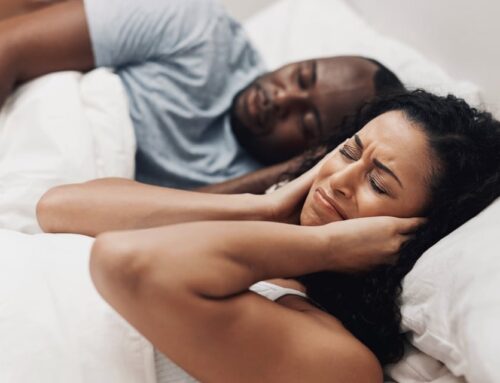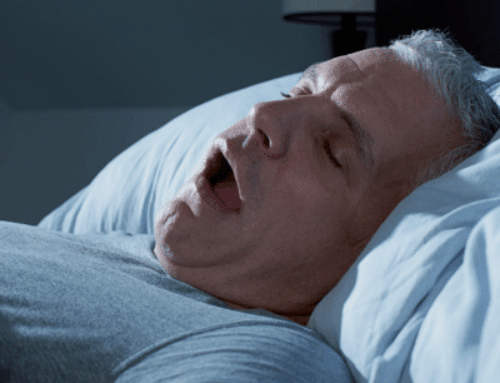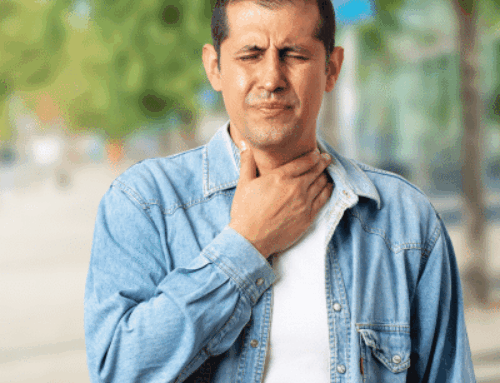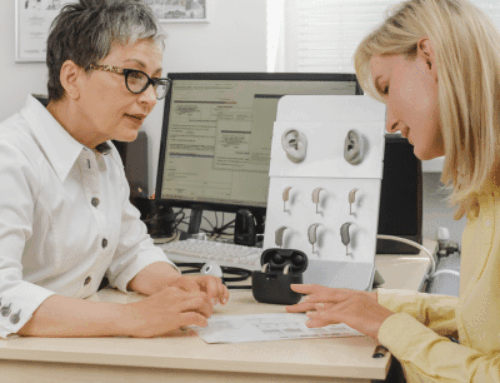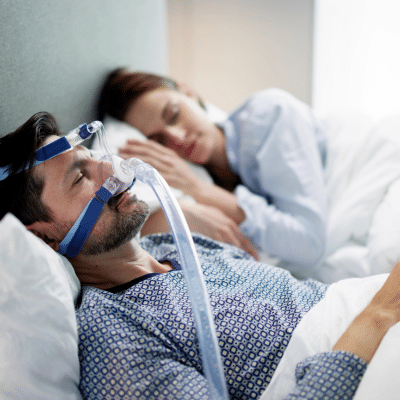 At Virginia ENT, we understand sleep apnea is a common sleep disorder that affects millions of people around the world. It occurs when a person’s breathing is repeatedly interrupted during sleep, which can lead to daytime fatigue, headaches and other serious health issues. If left untreated, sleep apnea can increase the risk of conditions such as high blood pressure, heart disease and stroke. Fortunately, sleep apnea treatment options are available to help manage and alleviate symptoms. In this blog, we’ll explore what sleep apnea is, its symptoms, and various sleep apnea treatment methods.
At Virginia ENT, we understand sleep apnea is a common sleep disorder that affects millions of people around the world. It occurs when a person’s breathing is repeatedly interrupted during sleep, which can lead to daytime fatigue, headaches and other serious health issues. If left untreated, sleep apnea can increase the risk of conditions such as high blood pressure, heart disease and stroke. Fortunately, sleep apnea treatment options are available to help manage and alleviate symptoms. In this blog, we’ll explore what sleep apnea is, its symptoms, and various sleep apnea treatment methods.
What Is Sleep Apnea?
Sleep apnea is a disorder in which a person’s breathing repeatedly pauses and resumes during sleep. These breathing pauses can last from a few seconds to minutes, often occurring multiple times during sleep. The most common form of sleep apnea is obstructive sleep apnea, which occurs when the muscles in the back of the throat relax too much during sleep, blocking the airway. Another form of sleep apnea, central sleep apnea, occurs when the brain fails to send the correct signals to the muscles that control breathing. Complex sleep apnea syndrome is a condition that involves both obstructive sleep apnea and central sleep apnea occurring together.
Symptoms of Sleep Apnea
Recognizing the symptoms of sleep apnea is key to seeking treatment early. Common symptoms of sleep apnea include:
- Loud snoring
- Choking or gasping during sleep
- Excessive daytime sleepiness
- Difficulty concentrating
- Morning headaches
- Dry mouth or sore throat upon waking
If you or a loved one experience these symptoms, it’s important to consult a healthcare provider for a proper diagnosis and to discuss sleep apnea treatment options.
How Is Sleep Apnea Diagnosed?
Diagnosing sleep apnea typically involves a visit to your doctor or a sleep specialist. Your doctor may recommend a sleep study to monitor your breathing patterns during sleep. This can be done in a sleep clinic or at home using portable monitoring devices. A diagnosis is made based on the frequency and severity of breathing interruptions during sleep, as well as other clinical findings.
Sleep Apnea Treatment Options
Once sleep apnea is diagnosed, the next step is to explore the available sleep apnea treatment options. There are several treatments available, depending on the severity of the condition and individual preferences.
Continuous Positive Airway Pressure (CPAP) Therapy
One of the most common sleep apnea treatments is CPAP therapy. This involves wearing a mask over the nose or mouth while sleeping. The mask is connected to a machine that delivers a constant stream of air to keep the airway open throughout the night. CPAP therapy is highly effective for treating obstructive sleep apnea, and many people experience a significant improvement in their symptoms with consistent use.
Oral Appliances
For mild to moderate sleep apnea, oral appliances are an alternative sleep apnea treatment. These devices, often referred to as dental mouthpieces, are designed to reposition the lower jaw or tongue to prevent airway collapse. Oral appliances are comfortable, easy to use and ideal for people who find CPAP therapy difficult to tolerate. They are often recommended for people with mild obstructive sleep apnea or those who travel frequently.
Lifestyle Changes
In some cases, lifestyle changes can help manage sleep apnea symptoms. Maintaining a healthy weight, avoiding alcohol and sedatives before bedtime and sleeping on your side can reduce the severity of sleep apnea. Regular exercise can also help improve sleep quality and reduce sleep apnea symptoms. These lifestyle modifications can be a helpful part of your sleep apnea treatment plan.
Surgical Options
For people with severe sleep apnea or those who do not respond to other treatments, surgery may be necessary. Surgical options may include:
- Uvulopalatopharyngoplasty (UPPP): A procedure that removes excess tissue from the throat to widen the airway.
- Genioglossus advancement (GA): A surgery that repositions the muscles around the airway.
- Inspire therapy: A surgically implanted device that stimulates the airway muscles to prevent airway collapse during sleep.
Surgery is typically considered after other sleep apnea treatments have been exhausted.
Positional Therapy
Some people experience sleep apnea only when sleeping on their back. In such cases, positional therapy may be recommended. This treatment involves using special devices or techniques to encourage side sleeping, which may reduce the occurrence of sleep apnea events during sleep. This is often used in conjunction with other sleep apnea treatments.
How Can Sleep Apnea Be Managed?
While sleep apnea treatment options vary depending on the severity of the condition, managing sleep apnea effectively requires commitment. Regular follow-up with a healthcare provider is crucial to ensuring that the chosen treatment is effective. Some people may need to try different treatments before finding the one that works best for them. Monitoring your symptoms and making necessary adjustments can significantly improve your quality of life.
Request Your Appointment in Henrico, Prince George, Mechanicsville, North Chesterfield or Richmond, VA Today
Sleep apnea is a serious condition that can negatively impact your health, but with the right sleep apnea treatment, you can manage the symptoms and improve your overall well-being. Whether you opt for CPAP therapy, oral appliances, lifestyle changes, or surgery, there are various treatment options to fit your needs. If you or a loved one are experiencing symptoms of sleep apnea, don’t hesitate to seek professional advice. At Virginia ENT in Henrico, Prince George, Mechanicsville, North Chesterfield and Richmond, VA, we’re here to help you find the best sleep apnea treatment for your needs and guide you toward a healthier, more restful night’s sleep. Request your appointment today!

